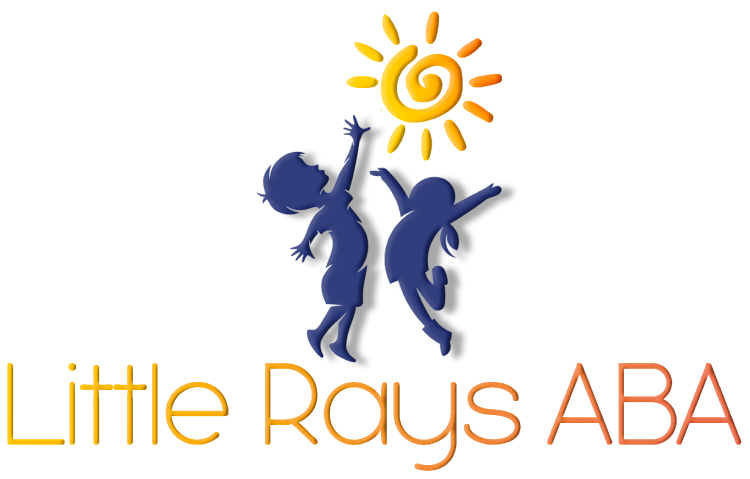
Key Florida Autism Statistics That Every Family Needs
Understanding Autism in Florida
For families and professionals in Florida, it is essential to have a robust understanding of Autism Spectrum Disorder (ASD) and the resources available to support individuals with autism.
Autism Spectrum Disorder (ASD) Overview
Autism Spectrum Disorder (ASD) is a complex developmental condition that affects communication, behavior, and social interactions. It is characterized by a wide range of symptoms and skills and often presents differently in each individual. In Florida, autism awareness and understanding are crucial in fostering a supportive environment for those affected by ASD.
One important aspect of addressing autism in Florida is understanding the statistics and prevalence rates. This knowledge informs the development of targeted services and interventions for individuals with autism.
Center for Autism & Related Disabilities (CARD) Support
The Center for Autism & Related Disabilities (CARD) in Florida provides comprehensive support to individuals with autism and their families. CARD focuses on facilitating access to evidence-based education and treatment services, assisting with individualized consultative support, and offering ongoing assistance after graduation for workforce or higher education and adult living success.
CARD's mission includes several key initiatives:
- Law Enforcement Training: Educating law enforcement officers on interacting with individuals with autism and related disabilities to prevent tragic loss of life.
- Autism Friendly Spaces: Creating more autism-friendly places and spaces throughout the state of Florida.
- Connections to Services: Connecting families to local, state, and federal agencies, and providing training on effectively working with individuals with autism.
CARD's multifaceted support system ensures that families and individuals with autism have access to essential resources and services. This engagement is crucial for optimizing the potential of individuals with ASD and related conditions.
For those interested in exploring specific autism-related resources or educational opportunities within the state, consider visiting our sections on autism schools in Florida and autism resources in Florida.
Prevalence and Statistics in Florida
Florida Autism Prevalence Data
Florida stands out in the nation for its high prevalence of autism. According to the CDC's 2018 report, 4.88% of children in Florida have been diagnosed with autism, making it the state with the highest prevalence rate in the U.S.. This data underscores the significance of understanding Florida autism statistics and the importance of tailored support for individuals with Autism Spectrum Disorder (ASD).
Data from Florida Health Department
The Florida Health Department provides extensive resources and statistical information on autism. These data help in understanding the scope and regional distribution of autism within the state.
| Source | Florida Autism Statistics |
|---|---|
| Florida Health Department | 4.88% of children diagnosed with autism |
| National Comparison | Highest prevalence rate in the U.S. |
Furthermore, organizations such as the Center for Autism & Related Disabilities (CARD) and the Dan Marino Foundation play crucial roles in addressing the needs of the autism community in Florida. CARD connects families to local, state, and federal agencies, offering training and resources on effectively working with individuals with autism.
These resources can provide valuable assistance to families and professionals working with individuals on the autism spectrum.
Autism Support Resources in Florida
Florida offers a variety of support resources to assist families, individuals with Autism Spectrum Disorder (ASD), therapists, educators, and professionals. In this section, we will explore two prominent organizations: The Dan Marino Foundation and Family Initiative Services. Search for ABA centers and home programs close to you to find additional local services that can complement these resources.
Dan Marino Foundation Programs
The Dan Marino Foundation is a key player in the autism support community in Florida. One of its most notable initiatives is its partnership with Miami Children's Hospital to operate the Nicklaus Children's Hospital Dan Marino Outpatient Center. This center serves as a comprehensive evaluation and treatment center for children with autism and special needs.
Key Services Provided by Dan Marino Foundation:
- Comprehensive diagnostic evaluations
- Speech and occupational therapy
- Behavioral analysis (ABA therapy)
- Family support services
Little Rays ABA
Little Rays ABA is another essential organization dedicated to improving the lives of children with autism in Florida. They focus on developing personalized plans to enhance children's abilities and promote growth through ABA therapy intervention. This method ensures the overall well-being of the children, making it a notable resource for many families.
Key Services Provided by Family Initiative:
- Individualized ABA therapy plans
- Parental support and education
- Social skills groups
These services are instrumental in providing necessary support to individuals with autism and their families. Moreover, they offer extensive support to ensure that every child with ASD can reach their full potential.
National Autism Statistics
Understanding the broader context of autism is essential for grasping its impact at the state level. The following sections provide a look into national autism statistics, focusing on prevalence and gender disparities in autism diagnosis.
CDC Reports on National Prevalence
Autism Spectrum Disorder (ASD) affects millions of individuals in the United States. According to a 2017 study, it was estimated that approximately 2.21% or 5,437,988 U.S. adults aged 18 and older have ASD. The prevalence of autism varies by state, ranging from 1.97% in Louisiana to 2.42% in Massachusetts. This highlights the geographical disparities in the prevalence of ASD.
| State | Autism Prevalence (%) |
|---|---|
| Louisiana | 1.97 |
| Massachusetts | 2.42 |
| National Average | 2.21 |
Gender Disparities in Autism Diagnosis
One of the significant aspects of autism prevalence is the gender disparity in diagnosis rates. Boys are four times more likely to be diagnosed with autism spectrum disorder than girls. This disparity is also reflected in state-specific prevalence rates:
Gender Disparity in Autism Diagnosis Rates (U.S. Prevalence)
Additionally, the male-to-female prevalence ratio of ASD varied by state, ranging from 3.94 to 5.08, and the male-to-female prevalence difference ranged from 2.32 to 3.16 percentage points across states.
Racial and ethnic disparities have also been noted. Historically, non-Hispanic white children were more likely to be diagnosed compared to non-Hispanic black and Hispanic children. However, recent data from 2023 shows that ASD prevalence among Asian, Hispanic, and Black children has increased and is now higher than among 8-year-old White children in the U.S..
These national statistics provide a context for understanding the Florida autism statistics and emphasize the need for tailored support and resources at both state and national levels.
Changes in Autism Diagnosis Trends
Understanding the changing trends in autism diagnosis is important for families, professionals, and educators. Significant increases in the prevalence of autism and new insights into genetic contributions are reshaping our understanding of Autism Spectrum Disorder (ASD).
Rise in Autism Prevalence
Autism prevalence rates have been progressively rising over recent decades. According to the CDC, in 2000, the prevalence was 1 in 150 children, but by 2020, it increased to 1 in 36 kids (2.8% of the population). Additionally, the latest data from the CDC reveals that 1 in 31 children in the United States is now identified with ASD by age 8.
Here is a table illustrating the changes in autism prevalence rates over the years:
| Year | Prevalence Rate |
|---|---|
| 2000 | 1 in 150 |
| 2010 | 1 in 68 |
| 2020 | 1 in 36 |
| 2022 | 1 in 31 |
Growing awareness, better diagnostic methods, and a broader definition of Autism Spectrum Disorder are contributing factors to the increasing rates. It's essential for autism schools in Florida and healthcare providers to stay updated with these trends to provide effective support and resources.
Genetic Contributions to Autism
Research indicates that genetics play a significant role in the development of autism. Genetic changes, whether inherited or occurring spontaneously, are believed to contribute to about 15% of autism cases.
Autism often involves multiple genes, a concept known as polygenic inheritance. Higher autism concordance rates between identical twins compared to fraternal twins further support the genetic component of the disorder.
| Study | Concordance Rate (Identical Twins) | Concordance Rate (Fraternal Twins) |
|---|---|---|
| Twin Study A | 77% | 31% |
| Twin Study B | 80% | 35% |
Research into the genetic basis of autism is ongoing, and it promises to enhance our understanding of the disorder and improve methods for diagnosis and treatment. Families, educators, and autism treatment centers in Florida can benefit from staying informed about these genetic insights to better support individuals with ASD.
Exploring and understanding these trends is critical for parents, therapists, and healthcare professionals in Florida. Staying informed ensures they can access and provide the most up-to-date resources and support.
Promoting Autism Acceptance
Promoting autism acceptance is essential to creating a society that understands and supports individuals with Autism Spectrum Disorder (ASD). Two important aspects in this effort are Autism Acceptance Month and workplace inclusivity for individuals with autism.
Autism Acceptance Month
Autism Acceptance Month, formerly known as Autism Awareness Month, is dedicated to recognizing the experiences of individuals with ASD and increasing societal understanding of these experiences. This initiative began in 1972 as National Autistic Children's Week and has grown into a month-long endeavor. The objective is to emphasize acceptance of individuals with neurological and developmental differences, ensuring they receive the necessary support in an inclusive society.
Autism Acceptance Month includes various activities and events aimed at raising awareness and promoting understanding. These include educational workshops, community events, and social media campaigns, all designed to foster a more accepting society.
During Autism Acceptance Month, local organizations and support groups, such as the Center for Autism & Related Disabilities (CARD), offer resources and information to families and individuals affected by autism. Schools and educational institutions often participate by organizing special events and programs to educate students and staff about autism.
Workplace Inclusivity for Individuals with Autism
Creating an inclusive work environment for individuals with autism is crucial for their well-being and professional growth. Employers are encouraged to support their neurodivergent employees, including those with ASD, by fostering a more inclusive company culture. This support extends to employees who are parents or caretakers of individuals with ASD, ensuring they are aware of the resources and benefits offered by the company.
Key strategies for promoting workplace inclusivity include:
- Providing autism-specific training for managers and staff to increase awareness and understanding of ASD.
- Implementing flexible work schedules to accommodate the unique needs of employees with autism and their families.
- Offering specialized support services, such as mentoring programs and employee resource groups, to address the challenges faced by neurodivergent employees.
- Ensuring the physical workplace environment is accommodating, such as reducing sensory overload in office spaces.
Employers can also collaborate with local organizations, such as the Dan Marino Foundation Programs, to provide additional support and resources for their employees. By adopting these inclusive practices, companies can create a supportive environment that empowers individuals with autism to thrive in their careers.
Promoting autism acceptance through events like Autism Acceptance Month and fostering workplace inclusivity are vital steps in ensuring individuals with ASD are supported and understood.
SOURCES:
https://www.cdc.gov/autism/data-research/index.html
http://florida-card.org/
https://www.floridahealth.gov/programs-and-services/people-with-disabilities/bright-expectations/conditions/autism.html
https://pmc.ncbi.nlm.nih.gov/articles/PMC9128411/
https://www.autismparentingmagazine.com/autism-rate-by-state/
https://seniorexecutive.com/autism-acceptance-month-guide/
Related Posts





